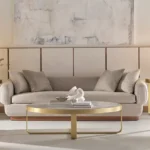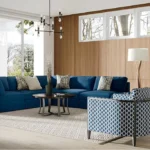Housemagnet
Key Elements of Modern Residential Architecture
Modern architecture has been dominating the residential design scene for several years now. With clean lines, minimalism, and a focus on functionality, modern architecture has become a popular choice for homeowners. In this article, we’ll explore the key elements of modern residential architecture.Minimalism and Simplicity
The key to modern residential architecture is minimalism and simplicity. Clean lines, open spaces, and a focus on functionality are all essential elements. The use of natural materials such as wood, stone, and metal adds warmth and texture to a modern design.Large Windows and Natural Light
Large windows and an abundance of natural light are hallmarks of modern residential architecture. They provide a connection to the outdoors, blur the lines between indoor and outdoor spaces, and allow for a seamless flow throughout the home.Open Floor Plans
Modern residential architecture favors open floor plans that create a sense of spaciousness and flow. This design encourages interaction and allows for easy movement throughout the home.Functionality
Functionality is a crucial element of modern residential architecture. Homes are designed to be practical and efficient, with a focus on maximizing space and minimizing clutter. Storage solutions are often built-in to maintain a clean, uncluttered appearance.Sustainability
Modern residential architecture often incorporates sustainable and eco-friendly features such as solar panels, green roofs, and rainwater harvesting systems. These features not only reduce the home’s carbon footprint but also lower energy costs.Joseph Artault
Joseph has a Master’s in Hotel Management from Tours, France. An architecture enthusiast, he changed career and studied sustainable architecture at the Auroville Earth Institute near Pondicherry.


